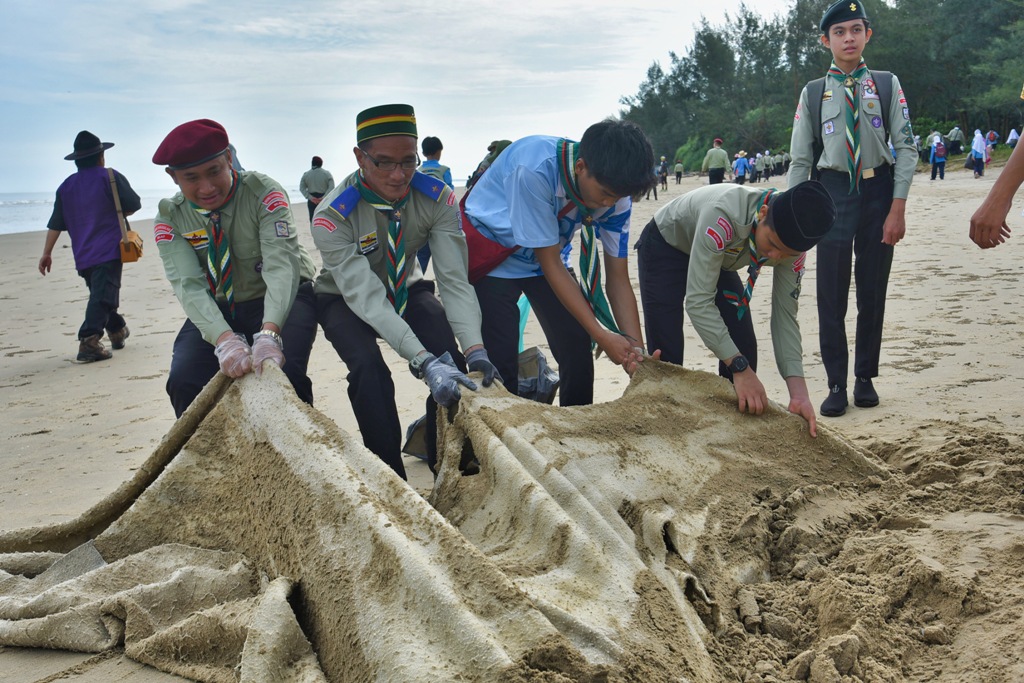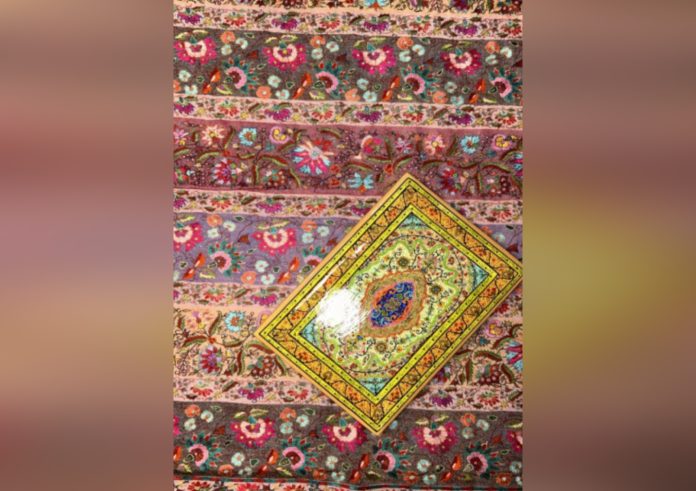The story isn’t just about the fall of a regime. That collapse left behind countless wounds and pains, each chronicled in notes. Thousands of lives were shattered, countless youths fled their homeland, brilliant minds were exiled, and hopes and dreams were buried.
The tale of the fall is the story of lives extinguished—young people who, over the past three years, have endured their hardest days, trapped in depression and uncertainty. On the third anniversary of the fall, young people from different walks of life—students, teachers, doctors, photographers, artists, and girls in exile—have shared sorrowful notes, each narrating the bitter reality of three years under Taliban rule. These notes reflect the harsh truths the Taliban have imposed on various sectors of society, particularly women.

Women and girls have written about their imposed lives under the Taliban, describing what they have endured over the past three years of Taliban rule. The first note is from a teacher who, despite numerous restrictions, continues to strive for the education of girls. She writes about the bitterness of the past three years of her life: “It has been three years of living in fear and uncertainty.
Three years under Taliban rule, for me as a girl, have been the epitome of inequality and injustice. If anyone wants to understand what injustice means, they should ask me and the millions of girls in Afghanistan who have experienced it firsthand under this oppressive Taliban regime for three years. For three years, we have been regressing with every passing second.
The Taliban have stolen our dreams and hopes during this time. According to the plan I had, I should have started my master’s degree alongside teaching at a university. But due to the Taliban’s rule, and because God created me a woman, I’m now forced to stay at home, enduring the high walls of fear and terror.
” Anis, a student, has written a brief but heart-wrenching note: “Three years under the Taliban’s flag mean nothing but pain, suffering, inequality, oppression, fear, terror, and restrictions for me.” Another note comes from a girl hiding at home out of fear of the Taliban. A few months ago, members of this group attempted to arrest her under the pretext of improper hijab, but she narrowly escaped.
She writes: “These three years of Taliban rule have been incredibly tough. Life has been unbearable for me. First, they took away my right to attend school.
Second, I can’t even go outside without fear. A few months ago, when I tried to go to an educational center, even though I was wearing a hijab, the Taliban’s morality police tried to take me away. Luckily, I managed to escape.
Since that day, about six months ago, I haven’t been able to attend my course. I’m terrified that it will happen again. Living without purpose is so difficult, and I fear what will happen to my future if the Taliban remain in power.
Will I ever achieve my dreams? These past three years, I should have been in twelfth grade, working toward my goals.” She concludes her note, in bold, separate from the rest: “Everything passes, but we will never forget how they erase us every single day.” In a time when art and artists have fled Afghanistan, some artists still struggle to preserve their craft.
One artist from the Pul-e-Sorkh area in Kabul, once a gathering place for artists that now holds only regret, writes: “The world of art fades more every day in my country. As each day passes, our artistic world grows darker. In this land of art, art itself is in danger.
Its value is trampled beneath the filthy boots of a terrorist group. I’m afraid that my fellow artists will grow weary and abandon their brushes and paints.” In a final, sorrowful sentence, they liken themselves to a growing sapling that, after the fall, is now being destroyed by the Taliban: “I was like a sapling that was growing, but they cut off my branches, leaves, and blossoms.
They broke me so I wouldn’t grow. But I haven’t dried up yet—I will continue. I can still soar and make the world beautiful.
” A student in exile, the child of a former government soldier who fled out of fear of arrest, torture, and the killing of his family members, writes about the pain, regret, and suppressed anger of being homeless: “Our lives have become like a border, with life on one side and death on the other. Death in our own country, and a life full of humiliation in a neighboring land. But how can we live a life that offers nothing but pain? What did we do to deserve this humiliation, insult, and psychological torture? It’s been three years, and even from afar, the Taliban still torment us.
They said this land of darkness wouldn’t last long, but three years have passed. Who knows if the tyrant’s castle will ever fall?” A student of the Kabul Medical University, now an intern at a private hospital, shares in a note the irreparable loss of time during the three years of Taliban rule: “The past year brought irreparable damage to my life, and the greatest loss was time, the best wealth of my life. I’ve been held back from achieving my biggest goal, and each day I find myself further and further away from it.
Under the Republic, there were so many opportunities for progress. I was in my third year of dentistry and would have graduated by now and become independent. Now, I feel hopeless and broken, and I have no hope left.
” A photographer, a young woman whose dream was to capture the beauty of life in her frames and create lasting memories, has lost her camera and her workspace. She is now confined to her home, mourning the loss of her dreams and enduring difficult days. In the note she sent to mark the third anniversary of the fall, she calls the continued Taliban rule devastating, stating that if it persists, the youth will be destroyed: “I’m 22 years old, but I always wish that I hadn’t lived through these bitter three years.
During these years, I’ve lost my university education, work, social activities, personal freedom, and even the right to choose my clothes. I’m terrified that if the Taliban’s rule continues, we will be set back another twenty years.” Women, under three years of Taliban rule, have lost their work and their paths to progress due to the decrees issued by the supreme leader of this group: “If the government hadn’t changed, I would now be in my third year of studying photography at the faculty of Arts.
I would have been working as a photographer and designer at an office, an independent woman, helping others as a capable young person. But unfortunately, all of that has turned into dreams and fantasies.” The notes, each filled with regret for lost time, shattered dreams, and the psychological and emotional torment brought by the Taliban, continue.
One of the most heartbreaking notes comes from a female journalist working for a media outlet under Taliban control. She began her first job after the Taliban takeover and endured the harshest restrictions and greatest humiliations in her workplace at the hands of the group. Forced to continue working under such conditions, she writes: “The past three years have been like a nightmare.
A nightmare that I’ve had to live through every moment, every minute. Every night, I sleep hoping these dark days will end, and I close each day thinking it’s the last day of this group’s rule. I can only say that these three years have passed like the darkness of night.
Perhaps the sun never rose. I never felt its warmth or light. We are the generation that endured twenty years of democracy, freedom, and equality.
The international community, in collusion with the Taliban, stole our dreams and goals. Once again, we women and girls have been sacrificed—sacrificed to war, to violence, to politics in which we had no part.” In her continued note, she describes the voices of journalists as suffocated and writes: “We are the voices strangled in our throats.
We are the seeds condemned never to sprout. I don’t even know how to describe the weight of this degradation, the humiliation, and the insult. Words fail me when I try to express what these three years have been like for me and women like me.
I’ve always been a victim in Afghanistan because of my gender, ethnicity, language, and religion. This time, too, I’m a victim. But I ask—why aren’t our sacrifices recognized? Why do these days never end? If there’s a spring after every winter, then where is our spring? Why hasn’t it come?” These notes are a testament to the fact that, under three years of Taliban rule, women and girls from every class and background have suffered a bitter existence.
Despair, depression, exile, torture, fear, the deprivation of all rights, and resistance are the results of three years of Taliban power in Afghanistan. These notes speak of a lifetime lost, waiting for a spring that has turned into autumn. You can read the Persian version of this daily report here: پس از سقوط؛ آنچه بر زنان و دختران در سه سال حاکمیت طالبان گذشته است.



















